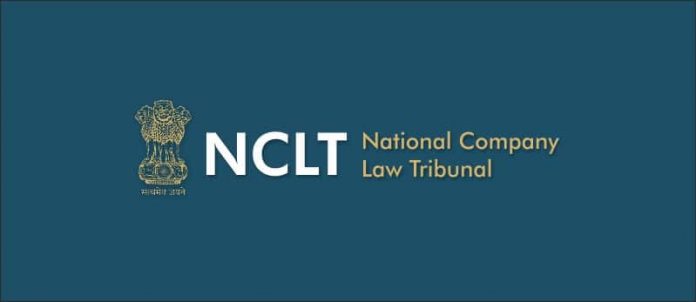This article has been written by Amarpal Singh, from the School of Law, University of Petroleum and Energy Studies, Dehradun.
Table of Contents
Introduction
The National Company Law Tribunal (hereinafter referred as NCLT ) has exclusive jurisdiction with respect to matters which relate to oppression and mismanagement. However, there have been instances, where there was an arbitration clause in the Article of Association (hereinafter referred to as AOA), and subsequently, a petition for oppression and mismanagement was filed before the NCLT. The question arises in such a scenario, whether the NCLT has a jurisdiction to refer parties to arbitration pursuant to Section 8 and 45 of the Arbitration and Conciliation Act, 1996.
This article aims to categorically provide an answer to the above question by referring to various judicial decisions.
Whether NCLT is bound to refer parties to an arbitration
In the case of Haryana Telecom Ltd. v. Sterlite Industries (India) Ltd., the Supreme Court held that Section 8(1) of the Arbitration and Conciliation Act, 1996 states that judicial authority, before whom an action is brought in a matter, will have to refer parties to arbitration in accordance with the arbitration agreement. However, only those disputes can be referred to arbitration which can be decided by the arbitrator.
Therefore, according to the above decision of the Supreme Court, it is clear that any judicial authority, including NCLT, is bound to refer parties in a dispute to arbitration, in a case where there is an arbitration agreement between the parties, provided that such dispute should be arbitrable.
Arbitrability of oppression and mismanagement
There is no clear definition of the term arbitrability. However, in the case of Booz Allen Hamilton Inc v. SBI Home Finance Ltd., it was held by the Supreme Court that the following disputes are arbitrable:
- That arises from an arbitration agreement;
- Disputes which parties have referred to arbitration; and
- Which are capable of being adjudicated through arbitration.
It was also held by the Supreme Court in this case that only those disputes which are related to right in personam are arbitrable and all the other disputes relating to the right in rem will be adjudicated by the courts and tribunals.
Further, in the case of S.P. Jain v. Kalinga Tubes Ltd., it was held by the Supreme Court that a petition for oppression and mismanagement is preferred when winding up of the company is not in the best interest of the shareholders, However, an order of winding up may be passed, if there are just and equitable grounds. In terms of arbitrability, winding up is not arbitrable as the arbitrator is not competent to order winding up of the company.
After perusal of Section 241 of the Companies Act, 2013, it may seem that oppression is right in personam as the petition for oppression and mismanagement can only be filed by those members who are being oppressed by the majority. According to the Booz Allen case, this should be considered arbitrable but Section 241 also states that a petition for oppression and mismanagement may also be filed. It can be done if the conduct of the company is being conducted in a manner prejudicial to the public interest which relates to right in rem. Therefore, it is not arbitrable. Thus, the position is not clear and courts have expressed different views on the arbitrability of oppression and mismanagement.
Judicial decisions
Bhadresh Kantilal Shah v. Magotteaux International
In this case, the Company Law Board (predecessor of NCLT), while dealing with the petition alleging acts of oppression and mismanagement, summarized the position of law in the above issue as follows:
- Article of Association (AOA) of the company binds the member as if there was a contract between him and the company.
- The right to file a petition alleging acts of oppression and mismanagement arises out of a commercial relationship between the shareholders and the company.
- The provisions of the Arbitration Act, 1940 are not repugnant to Section 9 of the Companies Act, 1956.
Rakesh Malhotra .v. Rajinder Malhotra
This case is considered as a landmark judgement as the Bombay High Court clubbed all the different views and settled the above issue.
Facts
Supermax Group was run by Rajinder Malhotra (Respondent) and his family members. The control of the business was majorly in the hands of Rajinder Malhotra along with his wife, and his younger son Rajiv Malhotra with his wife Kunika. There were many Indian as well as overseas companies within the group. In 2008, restructuring was done by which all the assets, business and plants that belonged to the Indian companies were transferred to a newly incorporated company under the control of Rakesh Malhotra (Appellant), who was Rajinder Malhotra’s elder son. Rajinder Malhotra and his wife and younger son continued to hold some portion of the equity in the Indian companies.
During the restructuring, a Subscription and Shareholding Deed (hereinafter SSD), along with certain business restructuring agreements were executed between Rajinder Malhotra and Rakesh Malhotra. In pursuant to the SSD and other agreements, Rakesh Malhotra got the sole authority to represent Rajinder Malhotra in all transactions. He also got the authority to operate bank accounts. Subsequently, he transferred the funds deployed for the Indian companies held by Rajinder Malhotra to inter-alia bank loan guarantee and other facilities to companies under his control.
In the SSD, there was a clause that provided the London Court of Arbitration in Geneva has exclusive jurisdiction in case of a dispute between the parties. The restructuring of the companies resulted in a peculiar situation as all the directors of Rajinder Malhotra’s Indian company became employees of Rakesh Malhotra’s company. When Rajinder Malhotra got to know information about the transfer of funds, he approached the people who were earlier directors in his company, However, no one provided him with any information.
Subsequently, Rajinder Malhotra filed a petition alleging acts of oppression and mismanagement praying for the removal of directors and setting aside the restructuring. Whilst, Rakesh Malhotra obtained an ex-parte injunction from the Commercial Court of Queen Bench Division in the U.K, restraining Rajinder Malhotra from approaching Company Law Board. The action was contested and the injunction was dissolved.
Rakesh Malhotra filed an application under Section 45 of the Arbitration and Conciliation Act, 1996, to refer the dispute before the Company Law Board to arbitration which was rejected. Subsequently, an appeal was filed before the Bombay High Court.
Issue
Whether disputes relating to oppression and mismanagement can be referred to arbitration or not?
Judgement
The Bombay High Court held that to grant the reliefs which are provided in the Companies Act, 1956, in case of oppression and mismanagement, require the Company Law Board to exercise its statutory power. The same cannot be exercised by an arbitrator. It was further held that it does not matter whether the dispute is related to right in rem or right in personam. The disputes relating to oppression and mismanagement cannot be referred to arbitration.
An exception to the above rule
The Bombay High Court provided an exception to the above rule and held that if the petition of oppression and mismanagement is dressed up to outs the arbitration clause and is filed with vexatious or malafide intention, then it can be referred to arbitration. The court further held that it is compulsory to establish before the Company Law Board that such a petition is malafide/vexatious and the disputes involved are those which can be settled by an arbitrator.
Surender Kumar Dhawan & Ors v. R.vir & Ors.
Facts
In this case, Respondents had filed an application under Section 403 of the Companies Act, 1956 for the stay of proceedings related to oppression and mismanagement. The application was filed on the account that there was an arbitration clause in the AOA of the company.
Issue
Whether an arbitration clause in the AOA can debar the court’s jurisdiction in the matter of oppression and mismanagement?
Judgement
The Delhi High Court held that the right to file a petition, in the cases of oppression and mismanagement, is a statutory right that cannot be ousted by the clause in the AOA of the company. Thus, the relief for the stay of proceedings was declined by the court.
Dhananjay Mishra v. Dyantron Private Limited & Ors.
In this case, the National Company Law Appellate Tribunal (hereinafter referred NCLAT), while dealing with the issue of whether the issues raised in the petition of oppression and mismanagement are arbitrable or not, held that the acts of non-service of notice of meetings and financial discrepancies are the matters which specifically fall under the domain of Companies Act, 2013. It has exclusive jurisdiction under Section 242 to grant relief in these matters and the same cannot be referred to arbitration.
However, the disputes which arise out of contractual obligation can be referred to arbitration, if no specific relief under Section 242 of the Companies Act, 2013 is claimed.
Ayyasamy v. A.Paramasivam & Ors.
The Supreme Court, in this case, observed that if the jurisdiction of civil courts is excluded by the conferment of exclusive jurisdiction to a court or tribunal, then a dispute will be non-arbitrable.
Conclusion
In the light of the above judicial decisions, it can be concluded that disputes relating to oppression and mismanagement are non-arbitrable. Further, the NCLT does not have jurisdiction to refer disputes relating to oppression and mismanagement to arbitration, except in the cases where the petition is vexatious or malafide; dispute between the parties arose out of contractual relationship; no specific relief under Section 242 of the Companies Act, 2013 is claimed.
References
- Hattim Hussain, Arbitrability of Oppression & Mis-management claims in India : Analysing the Court’s attempt to in playing the sew-saw ride, KSLR Commercial and Financial Law blog, (January 22, 2019), https://blogs.kcl.ac.uk/kslrcommerciallawblog/2019/01/22/arbitrability-of-oppression-mismanagement-claims-in-india-analysing-the-courts-attempt-in-playing-the-see-saw-ride/.
- Aishwarya Singh, Arbitrability of Oppression and Mis-management claims in India, IndiaCorpLaw, (August 11,2019), https://indiacorplaw.in/2017/08/arbitrability-oppression-mismanagement-india.html.
- Stuti Dwivedi and Ridhima Sharma, Arbitrability of Oppression and Mis-management in India, young arbitrum, (September 22, 2020), https://youngarbitrium.in/arbitrability-of-oppression-and-mismanagement-in-india-by-stuti-dwivedi-and-ridhima-sharma/.
LawSikho has created a telegram group for exchanging legal knowledge, referrals, and various opportunities. You can click on this link and join:
 Serato DJ Crack 2025Serato DJ PRO Crack
Serato DJ Crack 2025Serato DJ PRO Crack











 Allow notifications
Allow notifications


